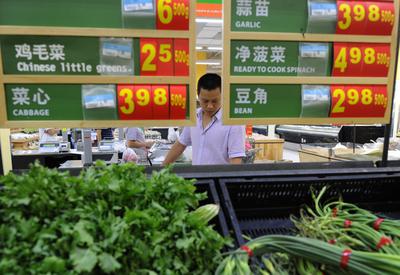Currently-explored actions mostly aim at strengthening national policy to deal with inflation and volatility. This is not sufficient. Inflation and extreme price volatility is an international issue requiring international action, both for productivity enhancement through investments and improved market functioning.
The sum of national actions being taken — more stocks or more trade restrictions or excessive biofuels subsidies — partly make matters worse, and are a typical case of collective action failure. To prevent extreme volatility, it is essential to ensure open trade and transparent, appropriately-regulated market institutions. But there is an institutional vacuum at the international level to address these matters. Neither the WTO nor anyone else has a mandate to address volatility comprehensively.
Two sets of measures for international policy action are needed.
First is better regulation of commodity exchanges. Excessive speculation opportunities in food commodities should be made transparent by better information on market actors and curbed by regulations. The costs of speculation should be increased through, for example, capital deposit regulations when an extreme price spike is signaled, and the transparency of futures trading needs to increase. Such regulatory actions require international policy coordination, for instance through the G20. They would be in the interest of Asia.
Second is innovative reserves policies. Global collective action for food-security enhancing grain reserves is needed. It should be composed of two elements.
One, a small, independent physical reserve should be established exclusively for emergency response and humanitarian assistance at the UN World Food Programme (WFP), and the WFP should be equipped with a humanitarian fund and permitted to engage with such fund in hedging (which it is currently not), to efficiently operate in the world food markets.
Two, a modest reserve shared by nations at a regional or global level and a virtual reserve mechanism — managed by a (to be newly founded) ‘World Food Reserve Bank’ — to help avoid extreme price spikes. The concept of virtual reserves is based on signaling theory where a strong commitment is required to increase the risk assumed by speculators in entering the market, which, in turn, would increase their discount rate and, as a result, lower the probability of them participating excessively in this market. This reserves concept is not a price-stabilization fund but an institutional tool for risk reduction (to prevent large spikes). The global price reduction effects from the International Energy Agency’s recent announcement that a modest amount of oil (60 million barrels) would be released from the oil reserve is a case in point, of what also needs to be set up for the global food system.
The G20 Ministers of Agriculture’s decisions on 23 June, such as increased R&D for food production, improved market and stocks information, and mechanisms of more policy coordination are helpful but not strong enough. Regional policy bodies, such as ASEAN, have discussed joint reserve policies, which could be one step in the right direction. Calling merely for national policy action would neglect the prevailing collective action failures in the global food system.
Joachim von Braun is Director of the Center for Development Research (ZEF), University of Bonn, Germany. From 2002 to 2009 he was Director General of the International Food Policy Research Institute (IFPRI), Washington DC.


Not sure, whether this idea will translate at a global level, since as everyone knows, the UN is still influenced by power of the west. We should work in the ASEAN level.